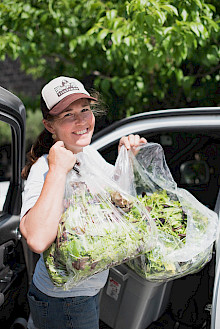
Perry Acworth
Course: Soil to Seed to Snack! Explorations in Urban Food Systems
We are excited to work with a group of students with interdisciplinary interests who are beginning their journey through UW.
Work directly with UW Faculty, begin building connections to the UW Campus and get personalized admissions, academic, and career advising! Watch our introductory video to learn more.
Seminars run from August 20, 2024 through September 12, 2024. Students are expected to be on campus from 9:30 to 1:00pm Tuesday, Wednesday, and Thursday.
As a Seattle College student, you can also apply for a $1,000 stipend to help offset the potential costs of attending the course (parking, transportation, etc). All seminars fulfill UW Writing (W) credits that will apply towards your UW degree should you attend in the future, and can likely be transferred to your Seattle College enrollment to apply towards Associates requirements too.
If you have any questions, please feel free to contact us at path2uw@uw.edu and a member of our team will follow up with you!
Ready to enroll? Visit our seminar enrollment page.
You may have heard about nanotechnology in sci-fi or in the news, whether it’s nanobot swarms, nanoparticles for drug delivery or carbon nanotubes in our phone batteries, but what is all this nano-stuff anyway? In this course, we will explore how, where, and why nanomaterials are used in technology today. We will study the unique properties of nanomaterials, examine a range of nanofabrication techniques, and investigate methods to image and characterize nanostructures in the context of a range of technological applications. We will take a tour of the Washington Nanofabrication Facility, see nanomaterials with a scanning electron microscope in the UW Molecular Analysis Facility, grow ceramic thin films and carbon nanotubes, create nanofoams, and run our own molecular dynamics simulations. These exercises will expose you and help you understand how we see, build, and design the nano-engineered world around us.
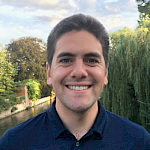
UW Assistant Professor of Mechanical Engineering
Some of my best students have been transfer students, so it is a pleasure to encourage other students like them to come to UW.
The course will include lab tours and demonstrations of some of the techniques we study in the classroom, including a trip to the UW Molecular Analysis Facility!
The course consists of lectures to introduce new nanomaterials concepts and topics, group discussions to think about how and why nanomaterials are used in different technological contexts, and live demonstrations of the topics we explore in the course. Students will also read scientific research articles about different applications of nanotechnology and develop their own research project proposal. By the end of the course, students will understand how nanotechnology is embedded in the world around us and will develop their own understanding of the good, bad, and interesting sides of the nano-engineered world.
First and foremost, this course is NOT a mushroom identification course. You will not be able to definitively identify mushrooms as a result of taking this course! This course, however, is an introduction to the social issues highlighted through a study of mycology. It takes a political ecology approach to learning about fungi and their fruiting bodies, mushrooms. We’ll journey through the political, social, historical, and geographical issues that surround mushrooms and learn what these issues can reveal about the world around us. We’ll focus less on the “what” and more on the “why” of mycology. This approach will allow us to explore connected writing skills through the writing of in-class reflections, prepared written takeaways, public scholarship through participation in an established citizen science project, a visit to the UW herbarium, and the exploration of connections between biology and art.
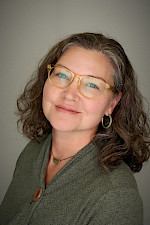
UW Assistant Teaching Professor, Integrated Social Sciences
As an Integrated Social Science Program core faculty member, I work every day with transfer students in my teaching. I have found transfer students to the UW are excited to embark on this new learning journey and I’m privileged to be a part of that journey. I see my role in the process is to create interesting, challenging, and relevant materials that foster students’ excitement and encourage them to become critical thinkers about the world around them. In addition, as a first-generation college student, I often identify with their questions and found that I’m uniquely positioned to anticipate their questions, concerns, and challenges and help them navigate the higher education path.
Students will get to go on a behind-the-scenes tour of the mycology collection overseen by the Burke Museum. This course takes an interactive and hands-on approach to learning that connects with many different fields, so is a great fit for students who prefer a less traditional in-classroom learning setting.
Through this course, students will learn to understand and analyze the interdisciplinary nature of mushrooms in social science research; demonstrate college level writing skills through participation in in-class writing assignments as well as participation in public scholarship; articulate your ideas and feelings about complex environmental issues, both in writing and in conversation; critically analyze environmental social issues and responses to these issues in light of their social, political, economic and ecological ramifications; and explain basic ethical challenges, questions and concerns related to the natural world. We will use a variety of evidence-based pedagogical methods to engage with topics related to mycology, sociology, and the environment. Students are encouraged to center themselves in the learning process to create informed and compelling questions to guide our conversations and activities in the classroom. We will also use these questions to guide our written work, site visits, and participation in public scholarship.
Topics we will explore in the course include:
The question of 'what to eat?' plagues well informed eaters from all walks of life! We will explore in practice together what makes an urban farm sustainable, how sustainable food is grown and what questions consumers can ask to learn more about their foods. We will consider and grapple with the 'right size and appropriate scale for sustainable farms, we will reflect on equity and justice issues that are at the heart of our food production systems, and we will explore alternatives. This class will in literal and figurative ways - 'give you a lot to chew on!'
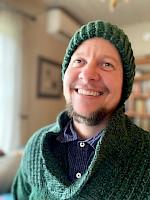
UW Assistant Teaching Professor
We are deeply committed to hands on learning and pedagogy which centers student engagement!
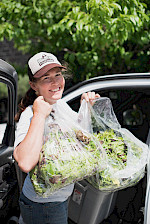
UW Farm Manager
We are excited to work with a group of students with interdisciplinary interests who are beginning their journey through UW.
Students get to spend class time outdoors learning about the UW Farm, sustainable food production processes, and the intersection of science and technology in the agricuture industry.
The course will be organized around hands-on experiential activities at the student farm. In addition to hand’s on learning this class will deepen students understanding of food systems through dialog, lectures, class projects, field trips and presentations. Class time will be divided between indoor sessions and out door lab activities. Students should expected to be outdoors on the UW farm for at least 50% of class time. During this class, students will develop knowledge of how science and technology are used in agriculture. Students will learn common agricultural plant families, urban soils, planting and harvest techniques and organic solutions to manage common farm pests. By the end of this quarter, students will understand farming methods which promote sustainable food production in urban settings. Students will develop an understanding of the ecological connections between food production, human health and planetary sustainability.
An examination of new technologies such as Connected and Automated Vehicles, Robotic Delivery and Artificial Intelligence. The course will cover how these technologies came about, their use, if and how they should be regulated and most importantly their social justice impact. The course will include guest speakers, readings (blog posts, news articles and excerpts from publications) and discussion. Students will be required to: write short, reflective papers on what was presented in the class or obtained from the readings and explore technology and policy through work in small groups.
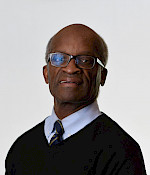
Director, UW Technology Law & Public Policy Clinic & Teaching Professor
I believe this program adds to the diversity of UW's student body. I have taught in the community college system (Edmonds Community College, Shoreline Community College) and based on my experiences believe the transition from a two-year institution to a four-year university can be challenging. I would like to use my course to acquaint students with some of the challenges they will face such as expressing themselves in writing, extracting information from materials and lectures and feeling comfortable expressing themselves in class.
Students will have the opportunity to hear from and pose questions to leading figures working in the Seattle area “technology eco-system.” In addition, small teams of 2-3 class members shall be given the opportunity to critique existing regulations (governing certain technologies) and craft new ones.
By the end of the course students will:
I expect to use assigned readings, lectures, Power Point slide presentations, and guest speakers to convey information on the workings, use and regulation of select new technolgies. I expect students to discharge assignments, attend all classes, pose questions and share their thinking. Along with weekly readings shall be one to two questions calling on students to reflect on what they have read and share their thoughts in writing. These assignments will be graded (the first assignment while graded will not count towards the final grade but shall be used to give students an idea of how they will be assessed). In total three weekly assignments are to be graded and students expected to submit an end of quarter five-to-seven-page paper on a topic where technology and public policy intersect.

Learn more about what it is like to enroll in the Path to UW program.
Learn more